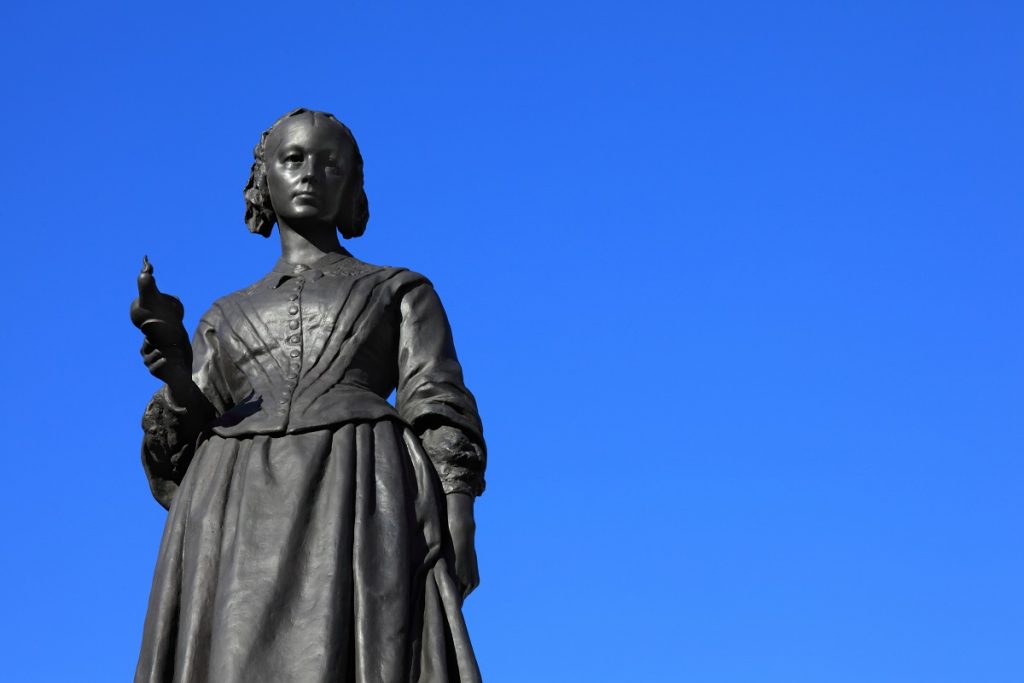As the world attempts to manage the devilish disease known as COVID-19, many are praising the efforts of first responders and medical professionals, particularly nurses at the hospice in Los Angeles, CA.
Yes, we can all do our part to help prevent the spread of the disease, such as making sure we wash our hands thoroughly with soapy warm water and practice social distancing. However, if we do find ourselves in a critical situation, it is consoling to know that we have the comforts of modern nursing.

As many nurses at hospice care in Los Angeles point out, we have Florence Nightingale to thank for this medical resource. In fact, May 12th of this year marks the 200th anniversary of Florence Nightingale’s birth. According to many around the world, she was the founder of modern nursing. She followed a strict regimen of straightforward hand washing and good hygiene, which helped to prevent infection and save many lives.
Since Florence established her foundation in the 1850s, nursing has developed into the greatest sector of the globe’s health workforce, carrying professional discipline with a rigid code of ethics and standards. Over the years, nursing has progressed and advanced to what we know of it today at a hospice in Los Angeles. Although nursing has changed a bit since Florence’s time, handwashing and hygiene for public health are still top priorities.
Who Was Florence Nightingale?
For many, Florence Nightingale was “the founder of nursing”. She was born into a wealthy family in Italy in 1820. When she was 24 years of age, she believed her vocation was to care for the sick and the poor. Although many of us have heard of Florence’s impact on nursing, not many understand how significant her influence was on this very important profession.
Before Nightingale paved the way for nurses everywhere, they had to learn through experience rather than formal training. Nightingale was responsible for raising the bar when it came to nursing standards since she managed to merge education and responsibilities into the profession.
Nightingale’s book, Notes on Nursing, she set up nursing education. The book lays out the standards of the nursing profession, gives advice on how women should take care of their families, and how to correctly manage disease. Also, she highlighted the importance of patient observation to properly treat and diagnose the patient.
What Did Florence Nightingale Do?
During the Crimean War of 1854, Florence and her 38 volunteer nurses, who she trained herself, were dispatched to the primary British encampment in Crimea. Needless to say, the conditions were dire. There were wounded soldiers who had to be cared for by overworked medical workers in small areas, and basic hygiene was unheard of. This brought on many infections, such as cholera and dysentery, which were everywhere and most likely killed more troops than the battle wounds they were afflicted with.
Florence is credited with providing strict hygiene practices and instructing the British government to send help via its Sanitary Commission. This helped to lower the camp’s death rate by a staggering forty percent.
When Florence returned to Britain, she set up the Nightingale Training School at St. Thomas Hospital in 1860. Today, it is known as the Florence Nightingale School of Nursing and Midwifery, which forms part of King’s College in London. Many nurses at the hospice in Los Angeles, CA, have read her 1859 book called Notes on Nursing, which is thought to be a classic introduction to nursing and the necessity of practicing good sanitary techniques and hygiene.
Undoubtedly, Florence influenced the world when it comes to healthcare, and she committed herself to provide support to nurses when it came to advanced training and institutionalizing top-notch nursing schools, which leading nurses over many generations have carried this baton since then.
What’s The Nightingale Pledge?
From 1893 till now, American nurses have recited The Nightingale Pledge when they have finished their training and began practice at a hospice in Los Angeles, CA. The Pledge is very similar to the Hippocratic oath since it is a statement of the ethics and principles of the nursing profession. It consists of a promise to commit yourself to the service of human well-being and to increase the standards and importance of nursing practice. Nowadays, versions highlight how critical teamwork is and keeping the topmost professional standards of practice.
What Is Modern Nursing?
At this moment, The State of the World’s Nursing 2020 reports that there are roughly over 28 million nurses around the world, which accounts for more than half of all health workers.
According to the American Association of Colleges of Nurses, in the United States alone, more than 3.8 million registered nurses (RNS) make up the country’s biggest healthcare profession. They work in many different environments, such as acute care hospitals to long-term care facilities. Within these environments, these nurses provide services from primary and preventive care to advanced clinical specialty care. Oftentimes, nurses’ job roles vary from direct patient to nursing education, administration, and even healthcare research.
During Nightingale’s time, bedside care was common, and nurses were engaged in performing good hygiene and patient care duties. In contrast to today’s nurses who are witnessing sicker patients with numerous health conditions and are even more swamped with responsibilities and are in more demand than ever before.
Based on details from the Institute of Medicine’s findings, which were published in 2010, stated that nurses should exhibit that nurses should begin to take up a leadership role to accommodate the country’s altering healthcare prospects. When we look back at Florence’s foreknowledge, it suggests nurses should practice to the full capacity of their education, training, and licensure, reach for higher levels of professional education and training, and perform as complete allies with physicians and other health workers in reconstructing the healthcare system that is currently available in the United States.
Florence’s legacy has made it possible for nurses of today to have more flexibility to specialize in their careers, which makes them extremely useful allies when it comes to patient care.



